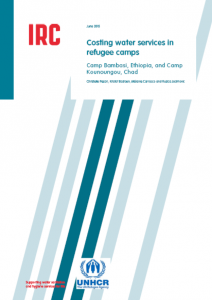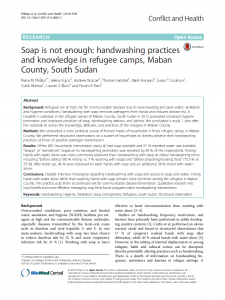 |
Costing Water Services in Refugee Camps (IRC and UNHCR, 2015)This report applies the life-cycle costs approach (LCCA) to the provision of water services in two UN refugee camps, Bambasi in Ethiopia and Kounoungou in Chad. It is based on cost data from financial reports in Geneva and both camps and on service-level data collected through the UNHCR monitoring system and on site through water point surveys.
|
 |
Soap is not enough: handwashing practices and knowledge in refugee camps, Maban County, South Sudan (Buffalo University, 2012)Refugees are at high risk for communicable diseases due to overcrowding and poor water, sanitation, and hygiene conditions. Handwashing with soap removes pathogens from hands and reduces disease risk. A hepatitis E outbreak in the refugee camps of Maban County, South Sudan in 2012 prompted increased hygiene promotion and improved provision of soap, handwashing stations, and latrines. We conducted a study 1 year after the outbreak to assess the knowledge, attitudes, and practices of the refugees in Maban County.
|
 Français
Français
